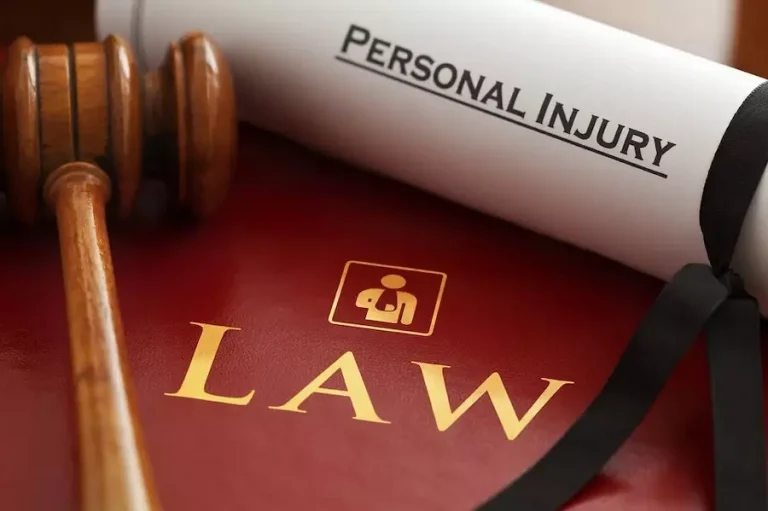A personal injury lawyer advocates for individuals injured due to another party’s negligence, aiming to secure fair compensation for medical expenses, lost wages, pain and suffering, and more. Understanding their role, the types of cases they handle, how fees work, and what to expect throughout the process will empower you to navigate your claim with confidence.
1. Core Functions of a Personal Injury Lawyer
Personal injury attorneys provide comprehensive legal support, including:
- Case Evaluation & Investigation: Assessing the facts, gathering evidence (police reports, medical records, witness statements), and determining liability.
- Legal Strategy & Advice: Identifying which laws apply, calculating damages, and advising on settlement versus trial tactics.
- Negotiations with Insurers: Crafting demand letters, negotiating settlement offers, and pushing insurers to value your claim fairly.
- Litigation & Court Representation: Filing lawsuits, handling motions, examining witnesses, and presenting your case at trial if no settlement is reached.
- Client Communication & Support: Keeping you informed of developments, explaining complex legal concepts, and guiding you through medical liens or subrogation issues.
2. Common Types of Personal Injury Cases
Personal injury lawyers specialize in a variety of claims, including but not limited to:
- Auto & Motorcycle Accidents: Collisions caused by distracted, impaired, or reckless drivers.
- Slip-and-Fall & Premises Liability: Injuries on another’s property due to hazards like wet floors or uneven walkways.
- Medical Malpractice: Harm resulting from substandard medical care or surgical errors.
- Product Liability: Injuries caused by defective or dangerous products.
- Workplace Accidents: Injuries at work, often overlapping with workers’ compensation claims.
- Wrongful Death: Claims by family members when negligence leads to fatal injuries.
- Catastrophic Injuries: Severe harm such as spinal cord damage, traumatic brain injury, or amputation.
3. How Personal Injury Fees Work
Contingency Fee Structure
Most personal injury lawyers work on a contingency basis:
- Fee Percentage: Typically 25–40% of the settlement or verdict.
- No Upfront Costs: You pay nothing unless the lawyer recovers compensation.
- Risk Sharing: The attorney assumes the financial risk of pursuing your case.
Additional Costs & Expenses
Beyond the contingency fee, you may be responsible for:
- Court Filing Fees: Nominal charges to file your lawsuit.
- Expert Witness Fees: Costs for medical or accident reconstruction experts.
- Investigation & Deposition Costs: Expenses related to gathering evidence and taking sworn testimony.
- Medical Record Retrieval: Fees for obtaining and copying records.
Personal injury lawyers often front these costs and deduct them from your recovery, ensuring you’re never out of pocket during litigation.
4. Typical Process & Timeline
- Initial Consultation (Week 0–2)
- Free or low-cost meeting to discuss your case facts and potential value.
- Investigation & Demand (Month 1–3)
- Gather evidence, calculate damages, and send a demand letter to the insurer.
- Negotiation Phase (Month 3–6+)
- Back-and-forth with insurance adjusters to agree on a settlement figure.
- Filing Suit & Discovery (Month 6–12)
- If settlement stalls, file a lawsuit, exchange documents, and take depositions.
- Mediation or Pretrial Motions (Month 12–18)
- Attempt alternative dispute resolution or resolve procedural issues before trial.
- Trial (Month 18–24+)
- Present evidence and witness testimony; await jury or judge decision.
- Appeal (Optional, Month 24+)
- Either party may appeal an unfavorable verdict, extending the timeline.
Cases without significant disputes may settle within 6–12 months, while complex claims often take 18–24 months or longer.
5. What to Expect as a Client
- Regular Updates: Your lawyer should provide clear status reports and respond promptly to your questions.
- Documentation Requests: Be prepared to share medical bills, employment records, and personal testimony.
- Settlement Evaluations: You’ll review offers and weigh the certainty of a settlement against potential trial risks.
- Emotional Support: Many firms offer resources to help clients cope with trauma and recovery challenges.
- Final Accounting: Once a case closes, expect a detailed breakdown of all fees, costs, and your net recovery.
6. Tips for Choosing the Right Lawyer
- Experience & Track Record: Look for a history of successful settlements or verdicts in cases like yours.
- Communication Style: Select an attorney who listens attentively and explains legal concepts in understandable terms.
- Resources & Network: Ensure the firm has access to top medical experts, investigators, and trial support.
- Client Reviews & Referrals: Read testimonials and ask for references from past clients.
- Transparent Fee Agreement: Confirm all fees and costs are clearly outlined in a written retainer.
By understanding the scope of services, fee structures, case timelines, and best practices for selecting an attorney, you’ll be well-equipped for the personal injury claims process. With the right lawyer by your side, navigating negotiations or trial becomes far less daunting, paving the way for a fair recovery on your behalf.
